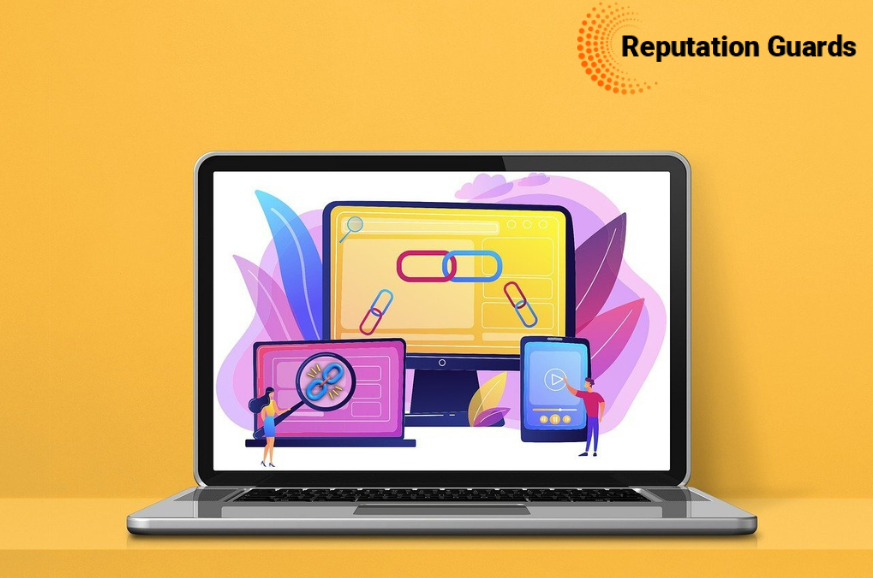In today’s digital age, a brand’s reputation is more valuable than ever before. With consumers relying heavily on online reviews, social media chatter, and search engine results to inform their purchasing decisions, maintaining a positive online reputation is paramount for businesses. However, managing and enhancing a brand’s reputation is not a one-time task; it requires continuous improvement and adaptation to stay relevant in a rapidly changing digital landscape. In this blog, we will explore the importance of continuous improvement in reputation management, evolving strategies for long-term success, and practical steps brands can take to stay ahead of the curve.
Embracing Feedback Loops
One of the keys to continuous improvement in reputation management is embracing feedback loops. Actively seek feedback from customers, stakeholders, and industry experts to gain insights into how your brand is perceived and where there may be areas for improvement. Use online surveys, social media polls, and customer reviews to gather feedback, and analyze the data to identify trends and patterns.
Moreover, establish processes for responding to feedback in a timely and constructive manner. Addressing concerns and implementing suggested improvements demonstrates your commitment to customer satisfaction and continuous improvement, ultimately enhancing your brand’s reputation and fostering loyalty among customers.
Monitoring and Managing Online Conversations
In the digital age, conversations about your brand are happening 24/7 across various online platforms. Monitoring and managing these conversations is essential for maintaining a positive online reputation. Invest in online reputation management tools that allow you to track brand mentions, monitor social media conversations, and analyze sentiment in real-time.
Additionally, develop strategies for responding to both positive and negative mentions effectively. Engage with customers who praise your brand to show appreciation and build relationships. For negative mentions, address concerns promptly and transparently, offering solutions where possible. By actively managing online conversations, you can shape the narrative surrounding your brand and mitigate potential reputation risks.
Proactive Crisis Management
Despite best efforts, reputation crises can still occur. However, proactive crisis management can help minimize the impact and protect your brand’s reputation in the long term. Develop a comprehensive crisis management plan that outlines roles, responsibilities, and communication protocols in the event of a reputation crisis.
Moreover, conduct regular crisis simulations and training exercises to ensure your team is prepared to respond effectively under pressure. By being proactive and prepared, you can minimize the duration and severity of reputation crises, ultimately preserving trust and credibility with your audience.
Emphasizing Transparency and Authenticity
In today’s digital landscape, consumers value transparency and authenticity from brands. Emphasize these values in your reputation management efforts by being open and honest in your communications. Share behind-the-scenes glimpses of your brand, highlight your values and mission, and be transparent about any challenges or setbacks you may face.
Moreover, take responsibility for mistakes and shortcomings, and demonstrate a genuine commitment to making things right. Authenticity builds trust with consumers and strengthens your brand’s reputation over time. By prioritizing transparency and authenticity in your reputation management strategy, you can cultivate a loyal and engaged customer base.
Data-Driven Decision Making
Data-driven decision making is essential for continuous improvement in reputation management. Leverage data analytics tools to track key performance indicators (KPIs) related to your brand’s online reputation, such as sentiment analysis, brand mentions, and customer feedback metrics. Analyze this data regularly to identify trends, measure the impact of your reputation management efforts, and uncover areas for improvement.
Moreover, use data to inform strategic decision making and prioritize initiatives that will have the greatest impact on your brand’s reputation. By harnessing the power of data, you can make informed decisions that drive continuous improvement and long-term success in reputation management.
Adapting to Emerging Trends
The digital landscape is constantly evolving, with new technologies, platforms, and trends emerging regularly. To stay ahead of the curve in reputation management, brands must be proactive in adapting to these changes. Stay informed about emerging trends in online reputation management, such as the rise of influencer marketing, the impact of voice search on SEO, and the importance of video content in brand storytelling.
Additionally, be willing to experiment with new strategies and tactics to see what works best for your brand. Stay agile and adaptable, and be prepared to adjust your reputation management approach as needed to stay relevant in a rapidly changing digital environment.
Cultivating a Culture of Reputation Management:
Building a culture of reputation management within your organization is crucial for sustaining continuous improvement in this area. Encourage all team members, from frontline staff to senior executives, to prioritize reputation management in their daily activities and decision-making processes.
Provide comprehensive training and education on the importance of reputation management, including how individual actions can impact the overall reputation of the brand. Foster a collaborative environment where employees feel empowered to contribute ideas and feedback for improving reputation management strategies.
Furthermore, recognize and reward employees who demonstrate excellence in reputation management, whether through exemplary customer service, crisis response, or proactive measures to enhance the brand’s image. By cultivating a culture that values and prioritizes reputation management, you can ensure that it remains a central focus for long-term success and growth.
Continuous improvement is essential for long-term success in reputation management. By embracing feedback loops, monitoring and managing online conversations, practicing proactive crisis management, emphasizing transparency and authenticity, prioritizing data-driven decision making, and adapting to emerging trends, brands can enhance their online reputation and maintain credibility with their audience. Let us therefore commit to ongoing improvement in reputation management, staying agile and proactive in our efforts to safeguard and enhance our brand’s reputation in the digital age.

